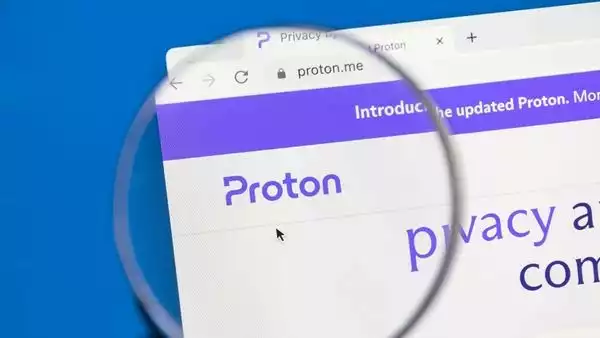With the launch of its new "Key Transparency" feature, Proton Mail, one of the best email services and a stablemate of the best VPN services, has entered the blockchain arena. With this latest feature, users can verify the recipient's e-mail address and verify that the sender is in fact who they say they are.
In an interview with Fortune magazine, Andy Yen, CEO of Proton VPN and Proton Mail, stated that they use blockchain "in a very pure form" and have nothing to do with shady crypto scams.
Proton Mail sets itself apart from other email providers in its emphasis on privacy. Each email sent through Proton is encrypted end-to-end, ensuring that only the sender and recipient have access to the content. Recipients who do not use proton mail can still receive password-protected emails.
End-to-end encryption works by encrypting the message using the recipient's public key, which only the recipient can open using their private key. If you are using a website over https, then it is encrypted end-to-end.
A system can be tricked into encrypting a message using a fake public key created specifically for a "man-in-the-middle attack. This is a type of cyber attack in which a malicious third party eavesdrops on messages between sender and receiver.
However, the victim never knows that they are being eavesdropped on and continues to believe that they are actually just communicating with each other.
This is precisely the problem that Key Transparency seeks to solve. Blockchains are like a persistent ledger, and once written to a blockchain, its contents cannot be changed.
Therefore, placing the recipient's public key on the blockchain makes it nearly impossible for a perpetrator to launch a MitM attack. The system cross-references these entries each time an email is sent, thereby ensuring that the correct private key is used each time.
"For verification to be trusted, it needs to be public and immutable," Yen said.
Key Transparency was recently launched in beta mode on Proton Mail's private blockchain. If testing proves feasible, it will soon be introduced to the public blockchain and used in large numbers.
Yen acknowledges that this is not a feature that the average user needs, but stresses the importance of Key Transparency for sensitive professionals such as journalists, executives, politicians, and activists. Furthermore, Yen advocates the use of Proton Mail to be constantly monitored online and to escape behavioral analysis.
Proton Mail currently serves approximately 100 million users, a number that is growing rapidly amidst growing privacy concerns.










Comments